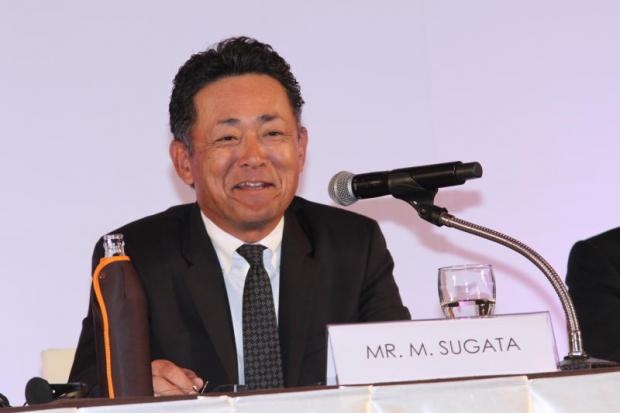
Japanese car giant Toyota pledges to produce a large number of hybrid electric vehicles (HEVs) in Thailand in a bid to make the country its emerging-market production hub.
The company will apply for Board of Investment (BoI) HEV privileges, Michinobu Sugata, the newly appointed president of Toyota Motor Thailand, said yesterday at a mid-year press conference.
Mr Sugata said Toyota Motor Thailand is working on its HEV plan with the BoI, but he refused to disclose further details on budget and production.
Manufacturers who apply for HEVs are entitled to a tariff exemption for imported machinery, while plug-in hybrid electric vehicle (PHEV) makers are eligible for a corporate income tax exemption for three years and import tariff exemptions on machinery.
PHEV investors who make more than one key electric vehicle (EV) part can get an additional year of corporate income tax exemption per piece. But the combined tax exemptions cannot exceed six years.
The deadline to submit an application to the BoI for HEVs is Dec 29, while the deadline for PHEVs is the end of 2018.
"Toyota also wants to develop the Thai market with high-tech and eco-friendly vehicles like EVs, as has been successfully done in Japan and the United States," Mr Sugata said, adding that HEVs can be fundamental to further developing more advanced EVs like PHEVs and battery electric vehicles (BEVs).
"At present, only the Camry sedan model has been made under the HEV platform in Thailand, but this model is categorised in the high-end segment due to its high pricing," Mr Sugata said.
Toyota Motor Thailand chairman Ninnart Chaithirapinyo said additional measures like offering a 50% excise tax discount would be sufficient to attract Thai motorists to buy locally made HEVs in the future, which could help create economies of scale to increase production of HEVs.
On June 20, the government announced new excise tax incentives for HEV and PHEV passenger cars under the BoI's promotional scheme.
Excise tax will be cut from a range of 25% to 5% based on CO2 emissions, while BEVs will be taxed at just 2% -- a sharp drop from 10%.
Passenger pickup vehicles and double-cab pickups that release CO2 at less than 175 grammes per kilometre under the HEV platform will be taxed at 23% and 10%, down from 25% and 12%.
This tax privilege, intended to promote EV production locally, is due to expire in late 2025.
"For the Thai market, Toyota not only plans to massively produce HEVs, but also waste management facilities for batteries and wrecked vehicles to support future HEV development, which is expected to kick off around October," Mr Ninnart said.